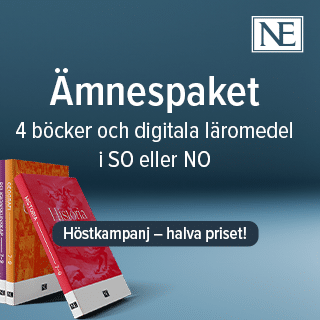Förskolan och mångfalden. En etnografisk studie på en förskola i ett multietniskt område.
Resultatet från Johannes Lunneblads avhandling visar att pedagoger har svårigheter att använda samhällets kulturella mångfald som en resurs i arbetet. Orsakerna är flera, men en förklaring är en osäkerhet hos pedagogerna om vad det innebär för förskolans arbete att Sverige är ett mångkulturellt samhälle.
Johannes Lunneblad
Professor Lars Gunnarsson, Institutionen för pedagogik och didaktik, Göteborgs u
Professor Pirjo Lahdenperä, Södertörns Högskola
GU – Göteborgs universitet
2006-09-08
Förskolan och mångfalden. En etnografisk studie på en förskola i ett multietniskt område.
Cultural diversity in early childhood education- an ethnographic study of a preschool in a multiethnic community
Institutionen för pedagogik och didaktik
Förskolan och mångfalden. En etnografisk studie på en förskola i ett multietniskt område.
I avhandlingen följs arbetet på en förskola i ett multietniskt område under period på 18 månader. De frågor som analyseras är hur pedagogerna diskuterar vad ett mångkulturellt arbetssätt är och vad det innebär för verksamheten. Hur pedagogerna i sitt arbete förhåller sig till den kulturella mångfalden i barngruppen och vilka möjligheter barnen ges att förstå sig själva och det mångkulturella samhället genom förskolans verksamhet.
Förskolan har sedan början av 1970-talet varit en del av Sveriges invandrarpolitik och sedan 1990-talet en del av Sveriges integrationspolitik. I läroplanen för förskolan uttrycks att förskolan är en social och kulturell mötesplats som skall förbereda barnen för ett liv i ett internationaliserat samhälle. I uppdraget ingår, såväl att överföra ett kulturarv: värden, traditioner, historia, språk och kunskaper från en generation till nästa, som att utveckla känsla och respekt för andra kulturer.
Denna studie visar dock på svårigheter inom förskolans verksamhet att, utifrån samhällets kulturella mångfald realisera uppdraget. Resultatet visar hur målsättningen att arbeta med den kulturella mångfalden beskrivs som en målsättning för invandrarbarnen , som ligger utanför den vanliga verksamheten. Resultatet visar också hur mångfalden osynliggörs genom pedagogernas sätt att hantera den kulturella mångfalden i barngruppen. Den kulturella mångfalden blir på så sätt inte en identifikationsmöjlighet i sig inom förskolans verksamhet, utan representerar det annorlunda i relation till det vi som gestaltas i förskolans arbete.
Om vi skall dra någon lärdom av studiens resultat, i riktning mot de mål som styrdokumenten satt upp som önskvärda, ser vi att detta inte är en fråga enbart för utbildningssystemet. Möjligheterna för förskolan att fungera som en mötesplats för en mångfald av identiteter och sociala och klassbaserade erfarenheter, är tätt sammanlänkat med arbets- och bostadsmarknaden. Idén om förskolan som en arena för möten och integration blir inte mycket mer än just en idé i ett samhälle med social och etnisk segregation.
Cultural diversity in early childhood education- an ethnographic study of a preschool in a multiethnic community
The Swedish Preschool has since the beginning of the 70s been part of immigration politics, and since the 90s part of integration politics in Sweden. In the policy documents, the preschool is defined as an arena for social and cultural interactions, aimed to strengthen the children and prepare them for a life in an increasingly internationalized society. Theoretically, this study is approached through discussions of the preschool as a societal institution. Concepts particularly at focus are: institution; ideology; representation; social and discoursive practices; articulation; social and discoursive positions, and those identities and identification opportunities offered or denied through such positions. These concepts in the toolbox are selected to operate together from the perspective of a Post-marxist understanding of society and its institutions. The preschool where this study is conducted is located in a multiethnic community. Methodologically an ethnographic approach is used. The study was conducted during a period of 18 months. Most of the data produced originates from observations, conversations and interviews. Additional data sources consist of photographs, schedules, policy documents, artefacts, etc.
Research questions illuminated through analyses of the data produced are: 1.In what ways are multicultural ways of working articulated by the pedagogues? 2. In what ways are cultural diversity handled by pedagogues in the preschool? 3. Which opportunities for identification are articulated in preschool activities with reference to the questions raised above?
The results are showing that multicultural ways of working are articulated as an objective or goal for the others. The results also show that the diversity in the work with the group of children, is made invisible. The cultural diversity does hence not represent an opportunity for identification, but rather is articulated as what is different, in relation the normal things taking place in daily preschool activities. One route to take in trying to change the situation appearing in the results might be to make intercultural education a constant part of the teacher education program. For this to be something different than still another version of cultural multiculturalism, the emphasis has to be on inter- , a process, the crossing of borders, and a relational understanding of a historic, social, and economic situation. The intention would be to stress the democratic commission of the higher education system, and to construct a teacher identity from values and norms where equality and respect for diversity in society constitute the foundation. These discussions should not, however, only take place in preschools and schools. The content of such a commission, what identities to be included or excluded, is something we all should feel and be responsible for. At the same time, it is important to pay attention to the fact that in today s society many people do not have the opportunities to be heard and listened to in such discussions. Without social justice, a discussion around a societal we , emanating from the cultural diversity of our society, will be nothing but ineffective.
Relaterade länkar

Fritidshem
 Åk F–6
Åk F–6 Matematikångest
 Åk 4–Vux
Åk 4–Vux 






